Top 20 Public Cloud Services Providers: Gartner Magic Quadrant
Accenture, DXC Technology, Deloitte and Rackspace are just some of the systems integrators and MSPs who made Gartner’s new 2020 Magic Quadrant for public cloud infrastructure services.

Gartner’s 2020 Public Cloud Magic Quadrant
By 2025, more than 80 percent of public cloud managed and professional services deals will require both hybrid cloud and multi-cloud capabilities from the provider, up from less than 50 percent today, according to IT research firm Gartner.
Enterprises can benefit from selecting a high-quality professional and managed services provider when leveraging solutions on Amazon Web Services (AWS), Alibaba Cloud, Google Cloud, IBM Cloud, Microsoft Azure and Oracle Cloud, said Gartner in its new 2020 Magic Quadrant for Public Cloud Infrastructure Professional and Managed Services.
With pubic cloud Infrastructure-as-a-Service (IaaS) delivering compute, storage and network resources in a self-service fashion, businesses need professional and managed services providers (MSPs) to choose the correct service elements and configurations, as well as ongoing management and maintenance support.
Here are the 20 market leading companies who made Gartner's 2020 Magic Quadrant for Public Cloud Infrastructure Professional and Managed Services Worldwide, along with assessments of each company's strengths and weaknesses.

Gartner’s Public Cloud Infrastructure Services Methodology
In order to be included on Gartner’s Magic Quadrant for Public Cloud Infrastructure Professional and Managed Services, an MSP must hold at least two audited cloud MSP partner certifications and deliver rich capabilities around managed services, cloud management platforms (CMPs) and professional services including consulting, implementation and ongoing advice.
Each MSP must provide CMPs covering at least 16 features, such as cloud service expense management, monitoring and analytics with dashboard reporting, consolidated billing, a self-service portal, provisioning and orchestration of cloud resources, multi-cloud management, as well as identity and access integration both with the customer’s and cloud provider’s services.
Companies who made Gartner’s Magic Quadrant also had to provide at least nine managed services such as proactive monitoring of traditional IaaS services, OS management and patching, and backup and restore. Additionally, MSPs must provide at least eight professional services such as cloud strategy assessment, migration planning and a cloud solution architecture, to name a few. The MSP also needs to provide a variety of packaging options for customers.
Gartner's Magic Quadrant ranks vendors on their ability to execute and completeness of vision and places them in four categories: Niche Players (low on vision and execution), Visionaries (good vision but low execution), Challengers (good execution but low vision) and Leaders (excelling in both vision and execution).
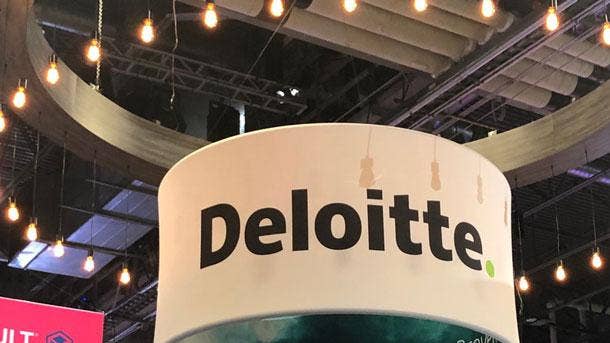
Leader: Deloitte
CSPs Supported: Alibaba Cloud, AWS, Google Cloud, IBM Cloud, Microsoft Azure, Oracle Cloud
The large global hybrid MSP won the gold medal for execution on the Magic Quadrant while also tying for first place for vision. In addition to its MSP business, called Deloitte’s Cloud Managed Services, Deloitte provides audit and assurance, consulting, risk advisory, financial advisory, and legal and tax services. The U.K.-based company’s OpenCloud CMP remains a big strength for Deloitte through its set of services comprising proprietary IP, and open-source and commercial software.
Strength: The company’s traditional business - which includes audit, risk advisory and financial advisory - puts Deloitte in a great position as a subject matter expert to provide MSP services in highly regulated industries.
Weakness: Deloitte focuses on large transformative projects in often complex end-to-end engagements, which makes it difficult for smaller customers to get the company’s attention.

Leader: Wipro
CSPs Supported: Alibaba Cloud, AWS, Google Cloud, IBM Cloud, Microsoft Azure, Oracle Cloud
The global systems integrator behemoth is leveraging Topcoder, a crowdsourcing company with an open global community of developers, to task-track its app development projects. Wipro supports multi-cloud as well as hybrid IT use cases targeting large enterprises with a focus on cloud-native requirements. The India-based company is gaining recognition for developing top-notch solutions for cloud and is co-funding innovation labs with hyperscale players to jointly develop new solutions. Wipro ranks second for execution and fourth for vision on the Magic Quadrant.
Strength: Wipro continues to enhance its functionalities around analytics integration, dynamic contract management and container orchestration, while also integrating its CMP with its other platforms.
Weakness: Wipro’s geographic sales presence isn’t as broad as the other major global players, specifically in Asia/Pacific, which limits its ability to support customers across the region.
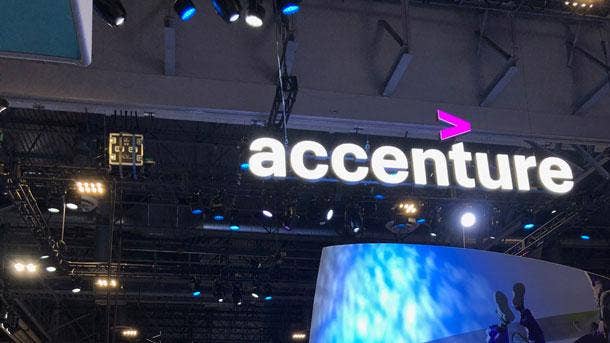
Leader: Accenture
CSPs Supported: Alibaba Cloud, AWS, Google Cloud, IBM Cloud, Microsoft Azure, Oracle Cloud
Accenture tied for first place for vision and is ranked third for execution on the Magic Quadrant. The Ireland-based global systems integrator that embeds its multi-cloud managed services into its overall global business with dedicated business groups for AWS, Alibaba Cloud, Google Cloud and Microsoft Azure. Last year, it boosted its Google Cloud business significantly with the acquisition of French consulting firm Cirruseo. Accenture was an early leader in public cloud managed services and uses its vertical knowledge as a differentiator.
Strength: Accenture places heavy emphasis on innovation architecture and engaging with over 5,000 startups in over 40 countries, which allows the company to gain unique knowledge to challenge traditional customer thinking.
Weakness: Businesses looking to support small, early cloud projects or with only moderate managed service requirements might find Accenture’s scale of approach to be much more than what’s required.
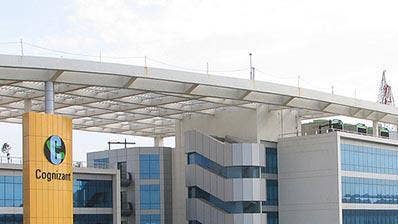
Leader: Cognizant
CSPs Supported: Alibaba Cloud, AWS, Google Cloud, IBM Cloud, Microsoft Azure, Oracle Cloud
The Teaneck, N.J.-based global systems integrator ranks No. 5 for both execution and vision on the Magic Quadrant. Cognizant’s cloud offerings are part of its broader services business with a core message that cloud is an enabler of digital transformation, providing hybrid IT deployments as a foundation. Cognizant’s portfolio includes platform, application and data modernization with capabilities for deriving value from cloud implementation and operations.
Strength: Cognizant offers a array of capabilities on its Cloud360 platform that integrates Cognizant IP with third-party cloud management tools and native cloud provider technology to support public cloud hyperscale infrastructure, as well as infrastructure-agnostic platforms such as Cloud Foundry and OpenShift.
Weakness: Cognizant’s experience managing complex commercial off-the-shelf applications, such as Oracle EBS and SAP S/4 HANA, in leading cloud providers’ environments is not as extensive as other companies on Gartner’s Magic Quadrant.
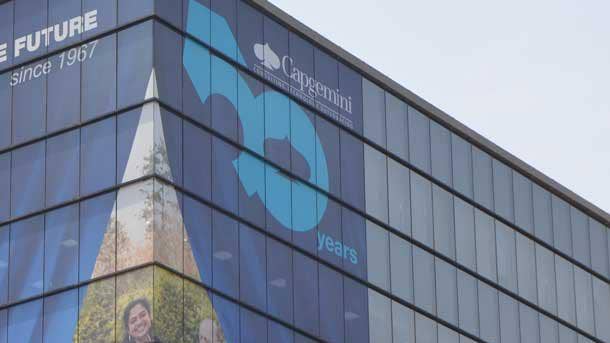
Leader: Capgemini
CSPs Supported: Alibaba Cloud, AWS, Google Cloud, IBM Cloud, Microsoft Azure, Oracle Cloud
Capgemini’s managed services are provided through the Capgemini Cloud Platform, which includes the consulting, services and tools that are used from early-stage strategy through ongoing management of cloud-based applications. For cloud migration, its economic Application Portfolio Management tool captures application characteristics and dependencies, then applies analysis to decide the best destination and rework level for each application in a hybrid environment. The France-based global systems integrator ranks No. 3 for vision and is among the top of the pack for execution on the Magic Quadrant.
Strength: Capgemini’s new integrated CMP covers both IaaS and platform as a service (PaaS) environments in its multi-cloud capabilities, which allows handoff to native cloud providers’ consoles when appropriate.
Weakness: Due to investments in automation and a tool-based approach to operations management, some customers that thrive on regular human interactions feel that they’re not getting enough attention from Capgemini, said Gartner.
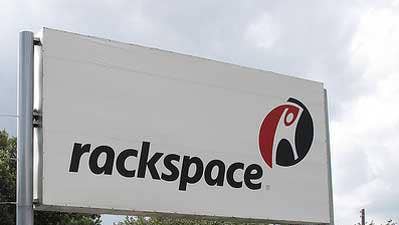
Leader: Rackspace
CSPs Supported: Alibaba Cloud, AWS, Google Cloud, Microsoft Azure
The Windcrest, Texas.-based cloud, managed hosting and application service provider ranks near the top of the pack for both execution and vision on the Magic Quadrant. In recent years, Rackspace has shifted to invest heavily in the public cloud service MSP market, including December’s acquisition of cloud-native AWS specialist Onica. Gartner said Rackspace is the only company on its Magic Quadrant that has successfully repositioned itself as a next-generation global systems integrator.
Strength: As a large privately-held company, Rackspace is directing significant resources toward growth and innovation without shareholder scrutiny. Its considerable M&A activity over the past three years have accrued great value because of it.
Weakness: Gartner said customers should make sure they understand Rackspace’s somewhat complex pricing and contracting services block models before committing to a contract.

Leader: Tata Consultancy Services (TCS)
CSPs Supported: Alibaba Cloud, AWS, Google Cloud, IBM Cloud, Microsoft Azure, Oracle Cloud
TCS provides public cloud professional and managed services in addition to its broad set of services that include cloud infrastructure, analytics and insights, cloud apps, enterprise applications and artificial intelligence. The India-based company ranks near the top of the pack for both execution and vision on the Magic Quadrant. TCS’ Cloud Exponence is a comprehensive multi-cloud management platform with integrations to cloud providers’ native tooling.
Strength: TCS is investing heavily in training a large number of its staff in the leading public cloud platform technologies. TCS’s Co-Innovation Network has many partners to extend its capabilities and activities beyond its own boundaries.
Weakness: The company’s coverage for cloud professional and managed services has not been fast enough to meet the demand in regions like China, Japan and the Middle East.
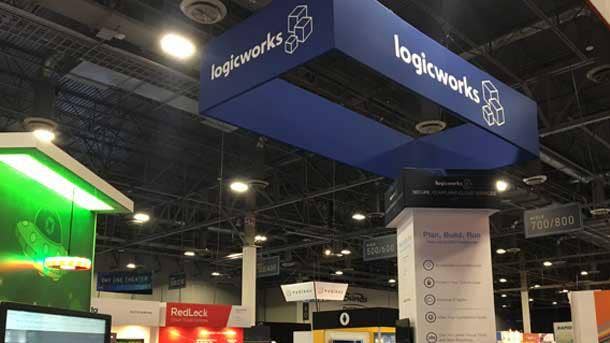
Leader: Logicworks
CSPs Supported: AWS, Microsoft Azure
Logicworks is one of the smallest players that Gartner deemed a ‘Leader’ on its Magic Quadrant, ranking near the top of the pack for both execution and vision. The New York City-based company began offering managed services for AWS in 2013 and now provides hybrid IT solutions, including VMware-based hosting and private cloud IaaS. With deep expertise in AWS and a growing Microsoft Azure services business Logicworks consistently earns high marks with customers for overall experience and trouble-free service.
Strength: The company built a service focused on security and compliance objectives for highly regulated industries that uses a “policy as code” approach with continuous compliance automation combined with a repository of pre-built policy templates and annual audits.
Weakness: Most of Logicworks customers are confined to North America. Businesses who have operations in other geographies and expect in-region account teams should consider other providers in those regions.

Leader: Smartronix
CSPs Supported: AWS, Google Cloud, IBM Cloud, Microsoft Azure, Oracle Cloud
The Hollywood, Md.-based midsize MSP, operating under the brand name Cloud Assured, offers public cloud managed services for AWS, Azure and Google. Smartronix has an extensive history in implementing and managing resources on the public cloud for security-focused organizations and businesses with significant regulatory concerns. The company, which ranked No. 141 on CRN’s 2019 Solution Provider 500 list, ranks among the middle of the pack for both execution and vision on the Magic Quadrant.
Strength: Gartner said Smartronix has one of the highest degrees of customer satisfaction for public cloud infrastructure services. It was the only provider evaluated in Gartner’s research to receive the highest overall satisfaction rating from every reference customer.
Weakness: Smartronix has limited experience managing IBM Cloud and Oracle Cloud, according to Gartner. The company also has limited coverage outside of North America and Europe.

Leader: Bespin Global
CSPs Supported: Alibaba Cloud, AWS, Google Cloud, IBM Cloud, Microsoft Azure
Seoul, South Korea’s Bespin Global ranks among the middle of the pack for execution and vision on the Magic Quadrant. The hyperscale-focused MSP’s OpsNow automated management platform has one-click access to multiple cloud vendor consoles. Bespin has a sizeable business in China, where it is integrated with the AWS and Microsoft Azure platforms, and it entered the Middle East with last year’s acquisition of Dubai’s cloud integrator and provider Falcon9. Bespin has won the Google Cloud Reseller Partner of the Year award for Asia-Pacific for two straight years.
Strength: Bespin has increased its ability to support large organizations with agile and reliable application requirements thanks to a strategy of building its cloud IT and traditional app capabilities ahead of competitors, its support of multiple cloud vendors and the company’s international growth.
Weakness: Bespin’s experience is based primarily on AWS deployments. It hasn’t developed its capabilities with other cloud platforms to the same extent, most notably with Microsoft Azure.
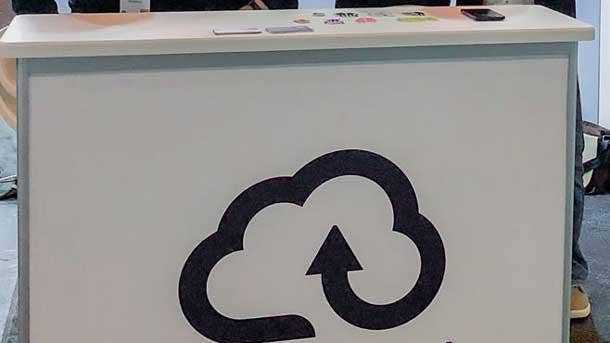
Challenger: Nordcloud
CSPs Supported: Alibaba Cloud, AWS, Google Cloud, Microsoft Azure
Helsinki’s Nordcloud ranks No. 4 for execution on the Magic Quadrant and among the middle of the pack for vision. The cloud-native MSP, which has 10 hubs in Europe and targets midsize to large enterprises looking to migrate to the cloud, has ambitions to become a Europe-wide, cloud-native systems integrator. Nordcloud supports more than 60 percent of the Nasdaq Nordic top 40, using its technical resources and a “mode 2” work approach focused on exploration and agility to outpace legacy MSPs.
Strength: Nordcloud has rapidly added on-staff Google Cloud Professional Certified cloud architects and data engineers to position itself for handling customers needing support in Google Cloud Platform’s Nordic region that opened in Finland in 2018.
Weakness: Unlike competitors, Nordcloud hasn’t made any major acquisitions and lacks experience in navigating challenges with integrating companies into its fold without disrupting customers and service quality.
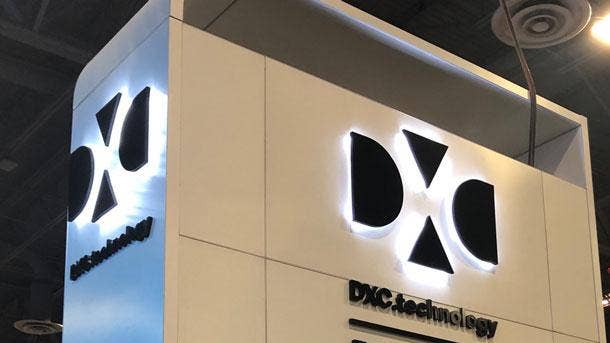
Challenger: DXC Technology
CSPs Supported: Alibaba Cloud, AWS, Google Cloud, IBM Cloud, Microsoft Azure, Oracle Cloud
DXC Technology ranks among the middle of the pack for vision and execution on the Magic Quadrant. Formed by the 2017 merger of Computer Sciences and Hewlett Packard Enterprise’s enterprise services division, the Tysons, Va.-based, end-to-end IT services company offers hybrid IT solutions as part of its MSP business. DXC bought Luxoft, a Swiss digital strategy and software engineering service business, for $2 billion in 2019.
Strength: DXC Technology has a global presence, resource depth and a significant traditional IT operational track record to serve large enterprises and competence in hosting complex, commercial off-the-shelf software applications such as enterprise resource planning suites in the public cloud.
Weakness: DXC Technology is more experienced in traditional legacy applications than advanced DevOps and associated cloud-native technologies. Although it continues to broaden newer capabilities, its customer base leans toward more traditional workloads.
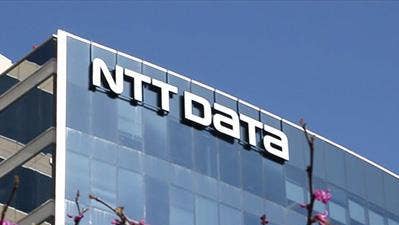
Challenger: NTT Data
CSPs Supported: Alibaba Cloud, AWS, Google Cloud, IBM Cloud, Microsoft Azure, Oracle Cloud
NTT Data ranks among the middle of the pack for execution on the Magic Quadrant and near the bottom for vision. Based in Tokyo, the large GSI provides IT services in areas including infrastructure, application, security and business process outsourcing. Its global services arm, Plano, Texas-based NTT Data Services, acquired AWS Premier Consulting Partner Flux7 in December to help customers move their workloads to the cloud and for its proprietary DevOps intellectual property.
Strength: NTT Data’s service offerings and the capabilities of its NTT Data Nucleus cloud management platform largely are equivalent in terms of operating across AWS, Microsoft Azure, Google Cloud and Oracle Cloud.
Weakness: The company hasn’t shown the standout innovation expected of a leader in this Magic Quadrant. It has a broad service range, but fewer services that are individually inventive compared to other providers that Gartner evaluated.
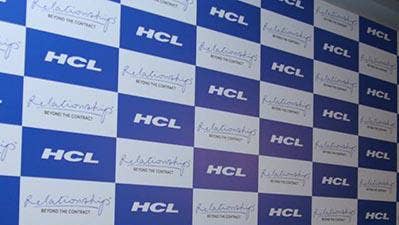
Visionary: HCL Technologies
CSPs Supported: AWS, Google Cloud, IBM Cloud, Microsoft Azure, Oracle Cloud
HCL Technologies ranks among the top of the pack for vision on the Magic Quadrant and near the bottom for execution. The India-based GSI supports hybrid IT use cases, and its cloud-native services offerings include cloud consulting, cloud-native applications, SaaS and cloud platform services, and vertical cloud solutions. Last fall, it unveiled plans to launch a dedicated Google Cloud business unit and designated Google Cloud as its "preferred provider" for some industries. HCL has cloud-native labs in India, London, Dallas and New York.
Strength: An independent software vendor, HCL Technologies uses many of its own software products for cloud migrations and operating in cloud environments, augmenting its capabilities when needed with other vendors’ products.
Weakness: HCL Technologies moves into many business and technology areas, but its willingness to tackle nearly any project can lead to one-off engagements without assets that can be reused for repeatable and predictable results.
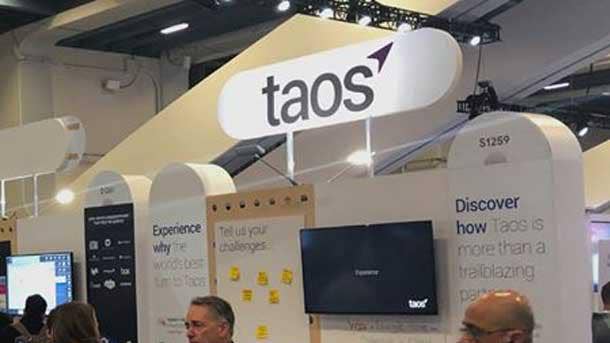
Niche Player: Taos
CSPs Supported: AWS, Google Cloud, Microsoft Azure
Taos, a consulting and managed services provider based in San Jose, Calif., ranks among the middle of the pack for execution and near the bottom for vision on the Magic Quadrant. Two-thirds of its employees are focused on its public cloud MSP business. In January, Taos announced a new alliances sales division dedicated to hyper-scale growth starting with cloud partners AWS, Google Cloud and Microsoft Azure.
Strength: Taos puts a big focus on recruiting and vetting candidates’ technical skills. It even has a trademarked Taos Technical Interview process that uses quantitative measures to assesses potential hires’ theoretical and practical experience.
Weakness: Taos lacks a distinct vertical market strategy. It focuses heavily on customization and tends to handle industry-specific requests as “standard operating procedure.” But Gartner said a “do whatever the customer wants” willingness doesn’t match the benefits of industry-specific expertise for compliance purposes.
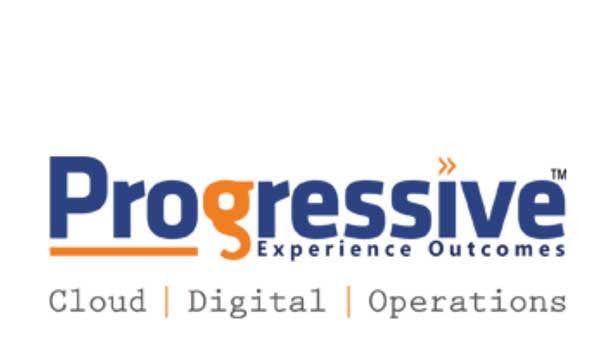
Niche Player: Progressive Infotech
CSPs Supported: AWS, Microsoft Azure
Progressive Infotech ranks among the middle of the pack for execution but is in last place on the Magic Quadrant for vision. The India-based midsize MSP offers transformation support services spanning the hybrid IT infrastructure life cycle. It operates its public cloud managed service practice as a stand-alone business unit inside the larger company. Centilytics, its intelligent cloud management platform, helps organizations manage, secure and optimize their public cloud infrastructure.
Strength: Progressive Infotech has simple, straightforward service-level agreements and service options, and its “value-for-money” proposition is a differentiator and attractive point of entry to managed services that’s likely to appeal to small and midsize customers unsure of the full extent of their cloud needs.
Weakness: Progressive Infotech only provides comprehensive support for two of the six cloud services providers in Gartner’s analysis, indicating it may not be able to service a full portfolio of systems for broad, multi-cloud adoption plans.
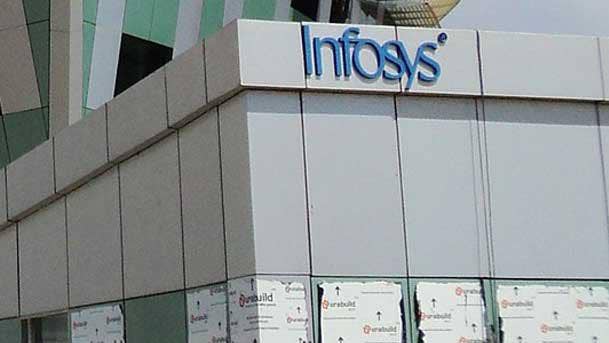
Niche Player: Infosys
CSPs Supported: AWS, Google Cloud, IBM Cloud, Microsoft Azure, Oracle Cloud
Infosys ranks among the middle of the pack for vision on the Magic Quadrant and near the bottom for execution. The Bengaluru, India, company provides cloud professional and managed services, and IT services offerings including transformation, business process redesign, and application development and maintenance. Its cloud management platform, Infosys Infrastructure Management Solution, supports hybrid IT deployments. Infosys acquired Salt Lake City’s Simplus for $250 million this year to bolster its position as an end-to-end Salesforce enterprise cloud solutions and services provider in the United States and Australia.
Strength: Infosys has expertise with large and complex deals, leaning toward transformation projects that usually require substantial consulting and cloud-native application development, which play to its core GSI competencies.
Weakness: Although the company has expanded support to include Google Cloud Platform and Oracle, Infosys’ experience is focused primarily on AWS and Microsoft Azure, and it has significantly fewer certifications than some global peers.
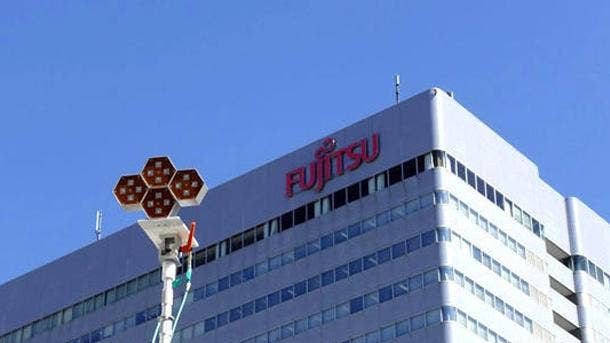
Niche Player: Fujitsu
CSPs Supported: Alibaba Cloud, AWS, Google Cloud, Microsoft Azure, Oracle Cloud
Tokyo’s Fujitsu ranks among the bottom of the pack for execution and vision on the Magic Quadrant. The MSP has a broad selection of traditional IT offerings, and a stand-alone business for managed and professional public cloud services. Fujitsu targets enterprise customers with complex cloud adoption needs and significant hybrid requirements with its multi-cloud-focused messaging, and has racked up experience in projects where complexity, security and technical debt are challenges for heritage IT systems.
Strength: Fujitsu’s global network places its physical infrastructure capabilities close to customers in most regions, which could be important for hybrid use cases and situations when network latency and proximity are sensitive to hurdles with cloud adoption.
Weakness: The company lags some competitors in cloud-native capabilities because it hasn’t earned specializations such as the AWS DevOps competency. Its relatively few cloud-native accelerators could impact its credibility with more technical cloud services buyers.

Niche Player: Atos
CSPs Supported: Alibaba Cloud, AWS, Google Cloud, IBM Cloud, Microsoft Azure, Oracle Cloud
Atos ranks among the middle of the pack for vision on the Magic Quadrant and near the bottom for execution. The Bezon, France-based GSI bought Syntel for $3.57 billion in 2018 to massively scale its North American footprint and financial services capabilities. Atos won the 2019 Google Cloud Services Partner of the Year Award for EMEA and the Services Partner of the Year Award for North America for Maven Wave, the cloud consultancy specialist it acquired in February.
Strength: Atos formed a strategic partnership with Google Cloud in 2018 to provide hybrid cloud, machine learning and collaboration solutions to enterprises. It’s been ramping up its Google Cloud Platform expertise, with a significant number of employees earning various GCP certifications.
Weakness: Atos has certifications for Microsoft’s broader technology suite, but relatively few Azure cloud certifications and must narrow the gap with competitors investing more aggressively in the platform.

Niche Player: CenturyLink
CSPs Supported: AWS, Google Cloud, Microsoft Azure
CenturyLink, based in Monroe, La., ranks last for execution on the Magic Quadrant and among the bottom companies for vision. Its hybrid hosting and public cloud managed and professional services division accounts for a relatively small portion of its overall business as a large telecommunications service company. To boost its cloud strategy, CenturyLink has purchased ElasticBox for its hybrid IT and multi-cloud management capabilities and Level 3 Communications, a network infrastructure connections and cloud services provider.
Strength: CenturyLink Cloud Connect Solutions service delivers high-performance and virtualized networking functionality for public and private clouds and was among the first solutions to provide pay-per-use, provisioned, high-speed connectivity to major public cloud providers.
Weakness: Gartner said customers should understand that CenturyLink has a network-centric view of public cloud solutions and may not offer more holistic solutions comparable to other providers.